Group
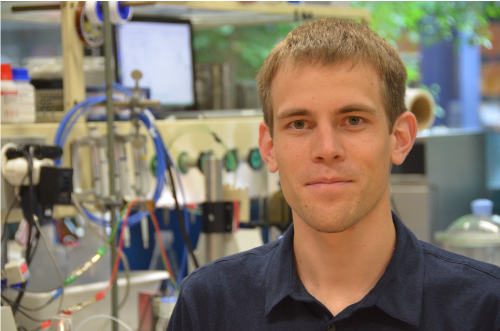
Marcel Schreier
Richard H. Soit Assistant Professor
mschreier2@wisc.edu
Engineering Hall 3016
Marcel received his bachelor’s degree in Chemistry and Chemical Engineering from EPFL and his master’s degree in Chemical and Bioengineering from ETH Zurich. During his studies, Marcel worked on Li-Ion Batteries at BASF and investigated Fischer-Tropsch refining catalysts at the University of Alberta. His master’s research was performed in the laboratory of Sossina Haile at Caltech, where he designed materials for fuel cell electrodes. He subsequently joined the laboratory of Michael Grätzel at EPFL, where he developed electrocatalysts and devices for the sunlight-driven conversion of CO2 to fuels. Following his passion for fundamental electrochemistry, he moved to MIT, where he worked with Yogi Surendranath as an SNSF Postdoctoral Fellow. He subsequently joined the Department of Chemical and Bioengineering at the University of Wisconsin-Madison as the Richard H. Soit Assistant Professor. Marcel wants to understand how the structure of the electrochemical interface and the surface chemistry of catalytic materials influence the fundamental mechanisms which drive chemical transformations using electrical energy. Apart from electrochemistry, Marcel is passionate about wired and wireless communication systems, Modern Art, energy systems, technologies of all kinds and policy. He also likes to row on rivers and lakes and hiking in the Swiss mountains.
Awards
- Kavli Fellow, National Academy of Science (2024)
- NSF CAREER Award (2024)
- Packard Fellowship for Science and Engineering (2022)
- Beckman Young Investigator Award (2022)
- Scialog Fellow, Negative Emissions Science (2020)
- National Academy of Engineering US Frontiers of Engineering Participant (2021)
- National Academy of Engineering US-Germany Frontiers of Engineering Participant (2023)
- SNSF Early Postdoc.Mobility Fellowship (2017)
- EPFL ABB Award (Best Energy-Related Thesis) (2018)
- EPFL Pelet Prize (2009)
Meet our group members
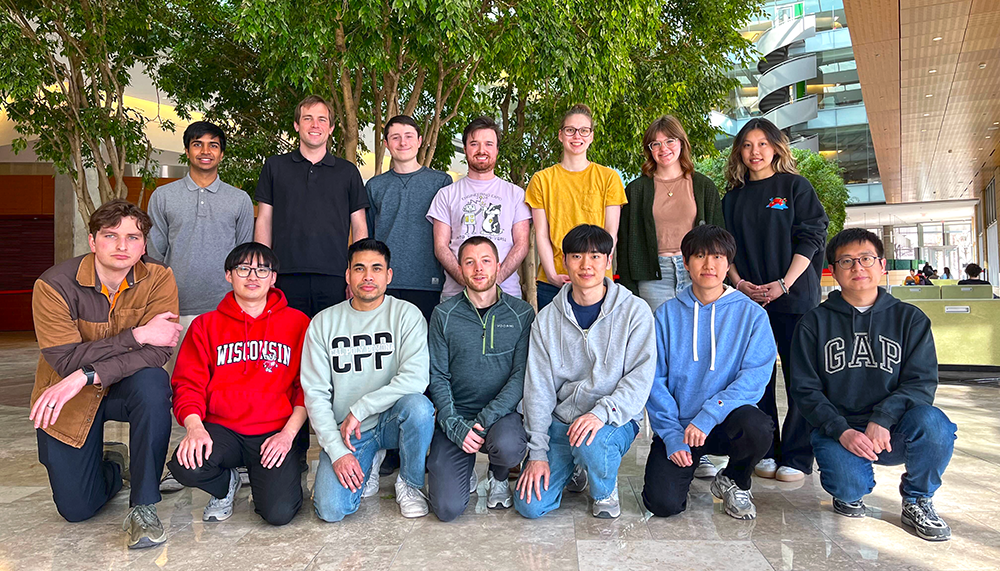
Graduate Students

Meg Kelly
Meg grew up near Boston, MA, and graduated in 2021 from the Georgia Institute of Technology with a Bachelor’s degree in Chemical and Biomolecular Engineering. She worked with Dr. Sievers in heterogeneous catalysis for lignin valorization. She joined the Schreier Group in 2021. In her free time, Meg likes baking, reading, and building lego sets. Click to learn more!
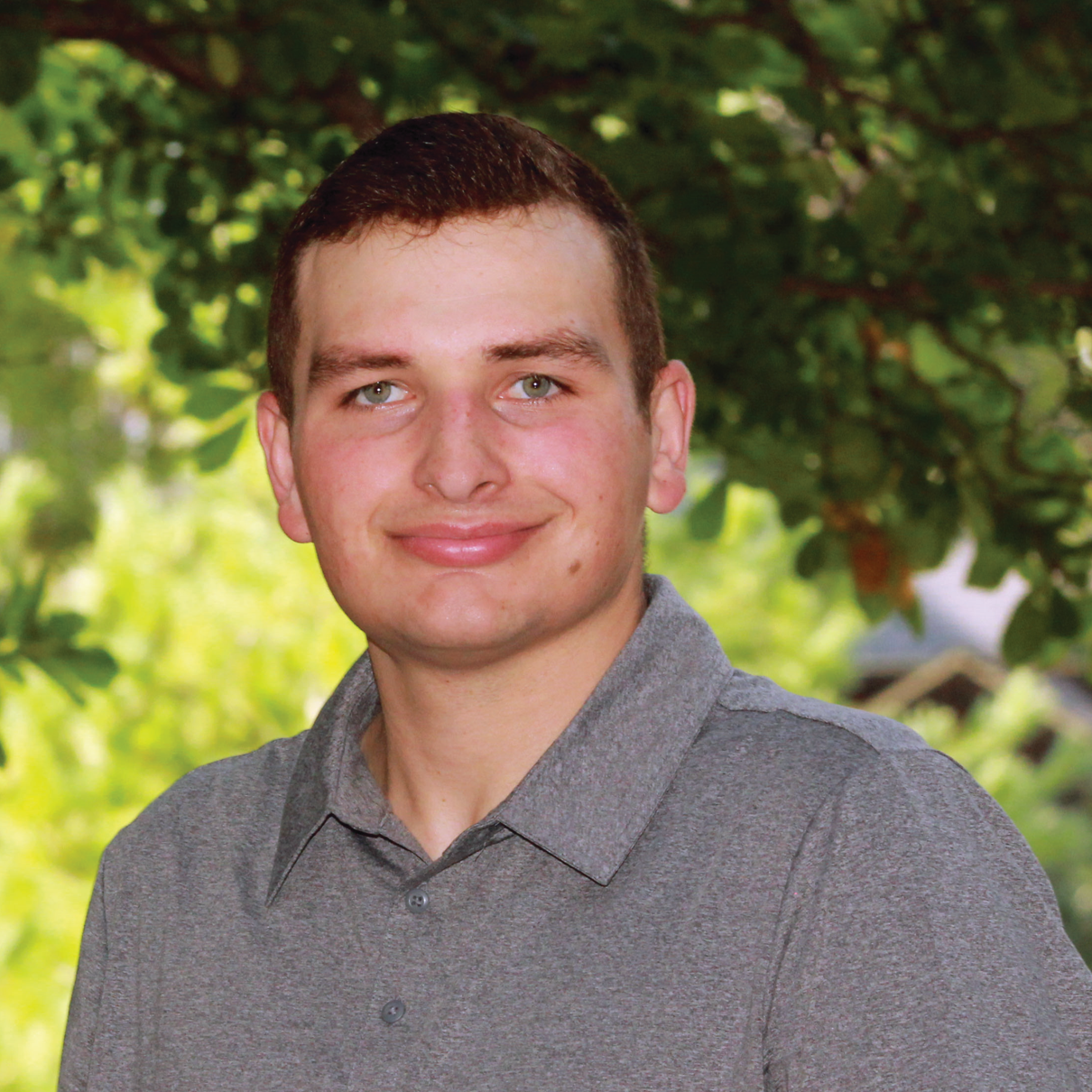
Lee Fuller
Lee grew up outside of Chicago, IL. In 2021, he graduated from the University of Wisconsin-La Crosse with an ACS certified bachelor’s degree in Chemistry. As an undergraduate, Lee worked on electrochemical CO2 reduction under Dr. Sujat Sen. He joined the Schreier group in 2021. In his free time, Lee enjoys fishing, spending time outdoors, and watching football. Click to learn more!
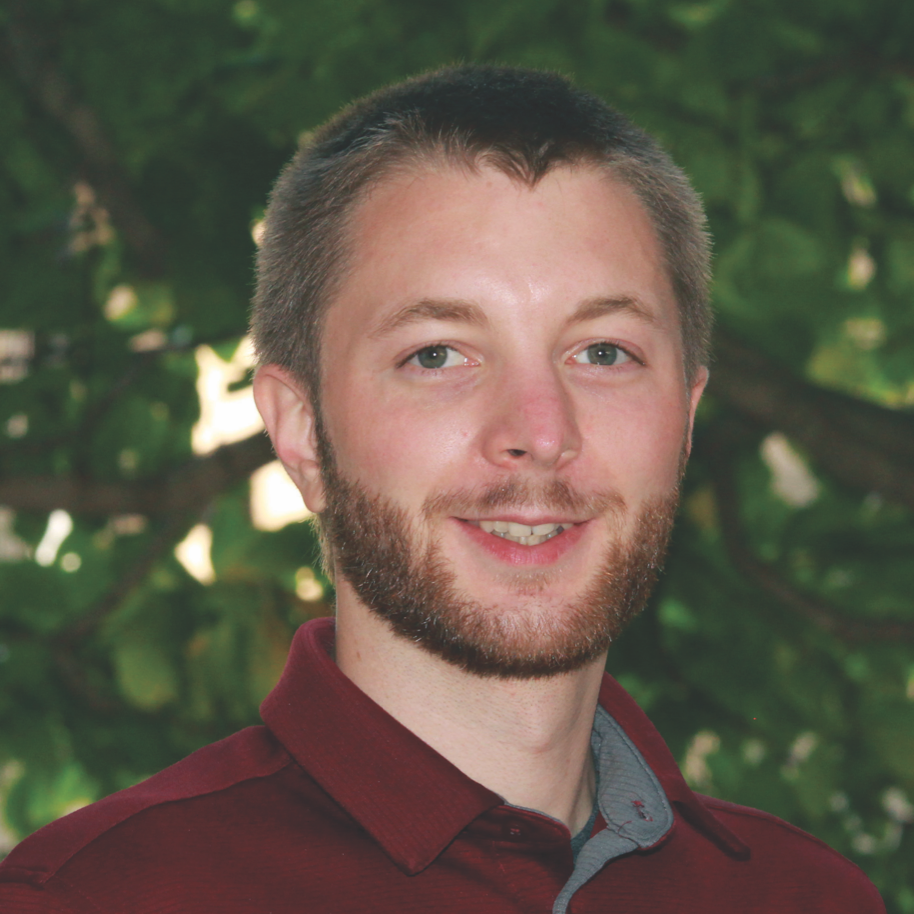
Alex Zielinski
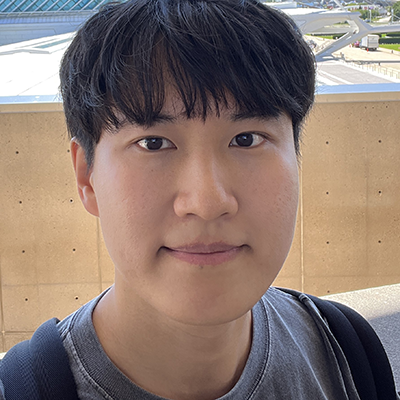
Seonmyeong Noh
Seonmyeong grew up in Gwangju City, South Korea. He graduated with a Bachelor’s degree in Chemical Engineering in 2015 and a Master’s degree in Polymer Engineering in 2017 from Chonnam National University. After graduation, he worked at several institutes, including for AMERI and KRIBB. Seonmyeong joined the Schreier group in 2022. He enjoys running, playing soccer, and watching sports. Click to learn more!
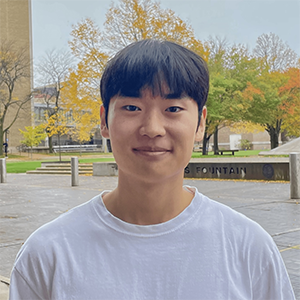
Geunryeol Baek
Geunryeol was born in Ulsan, South Korea. He received his Bachelor's degree in 2021 and Master's degree in 2023 in Chemical Engineering from Dong-A University. While working as a graduate research assitant under Prof. Su Chul Yang, he focused on the development of multiferroic polymer composites. Geunryeol joined the Schreier Group in 2023. Outside of academics, he enjoys hiking, swimming, riding a bike, and traveling. Click to learn more!
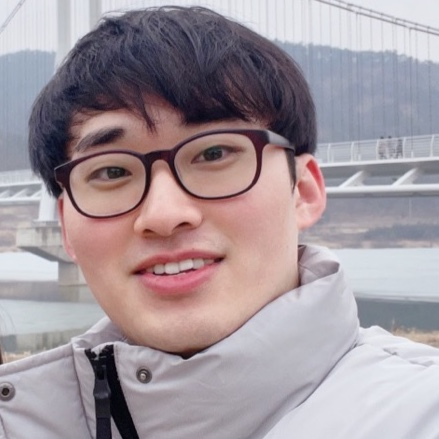
Gyunho Park
Gyunho Park grew up in Sangju, South Korea. He graduated from Seoul National University of Science and Technology (SeoulTech) with a Bachelor's degree (2020) in Chemical and Biomolecular Engineering and a Master's degree (2022) in New Energy Engineering. He studied redox flow batteries, and focused on improving the cycle stability of quinone-based redox flow batteries under the guidance of Prof. Kwon. Gyunho joined the Schreier group in 2023. He enjoys working out and playing mobile games in his free time. Click to learn more!
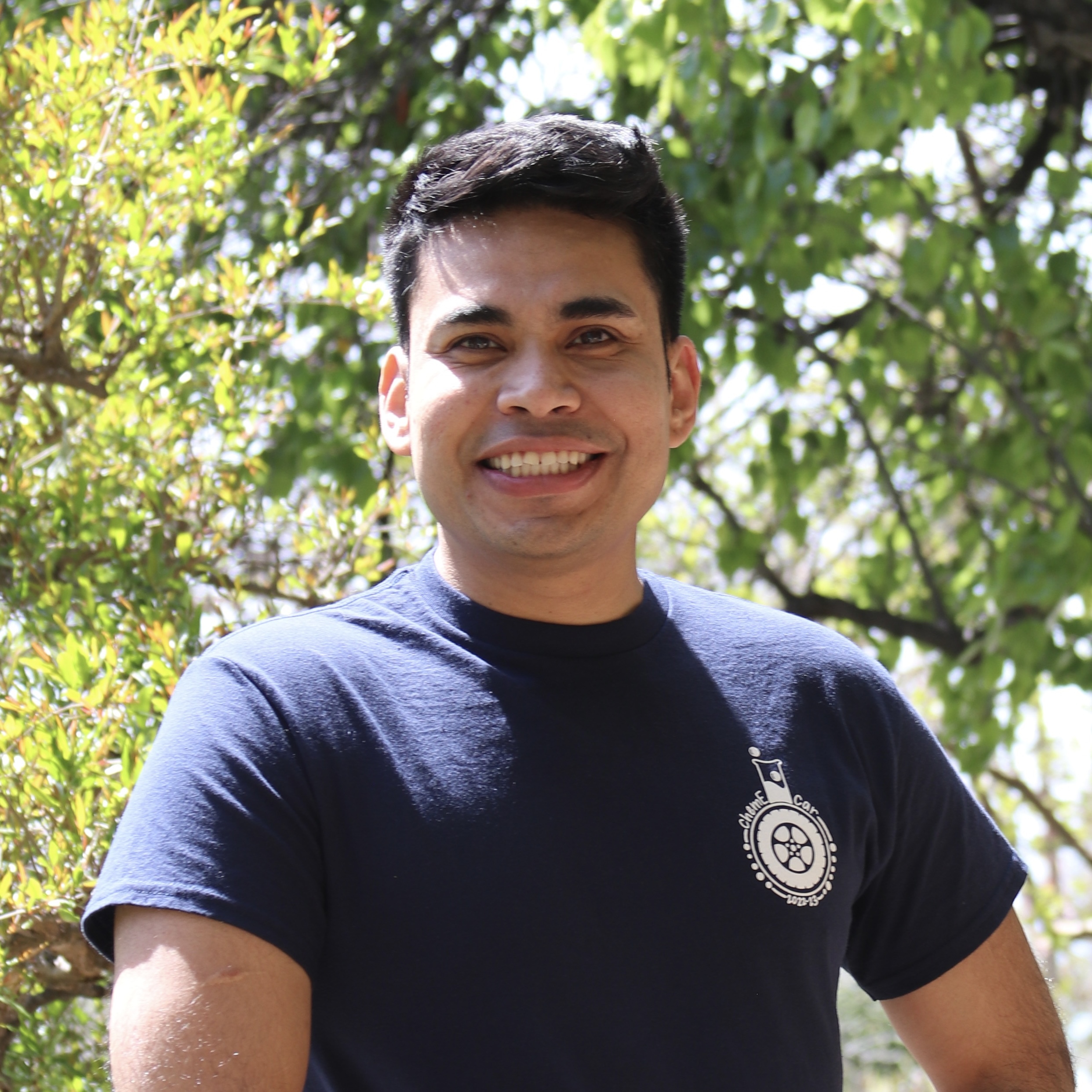
Enner Mendoza
Enner was raised in Anaheim, California. He attended California Polytechnic State University, Pomona (Cal Poly Pomona) and received his Bachelor’s degree in Chemical and Materials Engineering in 2024. During his undergraduate studies, he worked on the synthesis and characterization of organometallic catalysts under Dr. Alex John. He started his graduate studies at UW-Madison with a Graduate Engineering Research Scholars (GERS) Fellowship. He joined the Schreier group, co-advised with the Huber group, in 2024. In his free time, Enner enjoys being physically active, cooking, baking, and doing puzzles. Click to learn more!
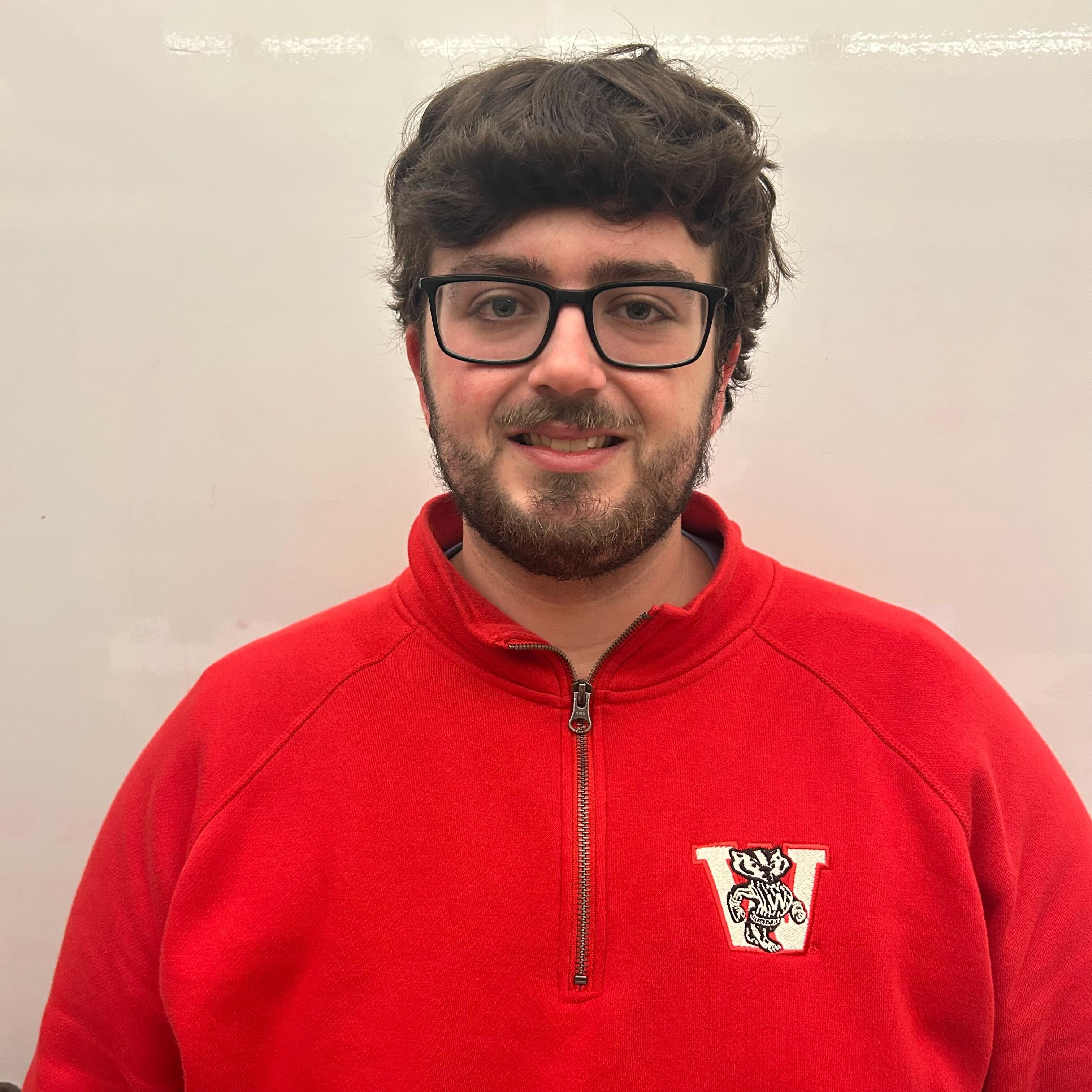
David Bennett
David grew up in the suburbs of Chicago, IL. In 2025, David graduated from Purdue University with a Bachelor's degree in Chemical Engineering. At Purdue, David worked on the development of conductive hydrogel materials for applications in the biomedical field under the guidance of Dr. Jianguo Mei. In 2025, David began his PhD studies at the University of Wisconsin-Madison and joined the Schreier group. In his free time, David enjoys watching football and baseball, traveling, working out, and playing video games. Click to learn more!

Join us!
What can you expect?
Students in our group work at the intersection of inorganic chemistry, engineering and fundamental electrochemistry. They learn to understand through which mechanisms electric fields influence chemical reactivity and how these mechanisms can be tailored to accomplish the transformations we desire. We use tools such as voltammetry, differential electrochemical mass spectrometry, electrochemical kinetics, kinetics simulation and spectroscopy to answer our research questions which center on the electrochemical transformation of large molecules. Students interact with the broader electrocatalysis community in a global context and establish their personal connections therein.
What should you bring with you?
An interest in electrochemistry, a passion for catalysis and as much curiosity as you can!
How to join?
Write an email to Prof. Schreier.

Zach Oliver
Zachary grew up outside of Hartford, Connecticut and attended the University of Rochester, graduating with a Bachelor’s degree in Chemical Engineering in 2020. While pursuing his undergraduate degree, he studied high-throughput modeling of groove-feed extruders at Davis-Standard and the scale-up of emulsion aggregation mixing processes with Dr. David Foster and Xerox Corporation. He joined the Schreier Group in 2020. Zach enjoys reading, going on bike rides, and spending time at the beach.
Prior Institutions
- University of Rochester (2020)

Meg Kelly
Meg grew up near Boston, MA, and graduated in 2021 from the Georgia Institute of Technology with a Bachelor’s degree in Chemical and Biomolecular Engineering. She worked with Dr. Sievers in heterogeneous catalysis for lignin valorization. She joined the Schreier Group in 2021. In her free time, Meg likes baking, reading, and building lego sets.
Prior Institutions
- Georgia Institute of Technology (2021)
Awards
- NSF GRFP (2023)
- Catalysis Club of Chicago Best Poster Award (2024)

Lee Fuller
Lee grew up outside of Chicago, IL. In 2021, he graduated from the University of Wisconsin-La Crosse with an ACS certified bachelor’s degree in Chemistry. As an undergraduate, Lee worked on electrochemical CO2 reduction under Dr. Sujat Sen. He joined the Schreier group in 2021. In his free time, Lee enjoys fishing, spending time outdoors, and watching football.
Prior Institutions
- University of Wisconsin-La Crosse (2021)
Awards
- ACS La Crosse-Winona Chapter Outstanding Senior
- ACS Division of Physical Chemistry Undergraduate Award
- University of Wisconsin-La Crosse Department of Chemistry and Biochemistry Outstanding Student in Physical Chemistry
- University of Wisconsin-La Crosse Department of Chemistry and Biochemistry Outstanding Student in Inorganic Chemistry
- 2020 UW-L Dean's Distinguished Fellowship

Alex Zielinski
Alex spent his youth in central Massachusetts where he later attended Worcester State University. In 2018, he graduated with a Bachelor’s degree in Chemistry and began working at Dupont Electronics and Imaging in Marlborough, MA. In the Advanced Packaging Technologies division, he performed R&D on copper electrodeposition and on polymer composite materials. In 2021, Alex began his graduate studies at The University of Wisconsin – Madison and joined the Schreier group. Alex enjoys biking, running, and gaming.
Prior Institutions
- Worcester State University (2018)
Awards
- 2018 Worcester State University Student Leadership Award in Chemistry

Seonmyeong Noh
Seonmyeong grew up in Gwangju City, South Korea. He graduated with a Bachelor’s degree in Chemical Engineering in 2015 and a Master’s degree in Polymer Engineering in 2017 from Chonnam National University. After graduation, he worked at several institutes, including for AMERI and KRIBB. Seonmyeong joined the Schreier group in 2022. He enjoys running, playing soccer, and watching sports.
Prior Institutions
- Chonnam National University (2017)

Geunryeol Baek
Geunryeol was born in Ulsan, South Korea. He received his Bachelor's degree in 2021 and Master's degree in 2023 in Chemical Engineering from Dong-A University. While working as a graduate research assitant under Prof. Su Chul Yang, he focused on the development of multiferroic polymer composites. Geunryeol joined the Schreier Group in 2023. Outside of academics, he enjoys hiking, swimming, riding a bike, and traveling.
Prior Institutions
- Dong-A University (2023)

Gyunho Park
Gyunho Park grew up in Sangju, South Korea. He graduated from Seoul National University of Science and Technology (SeoulTech) with a Bachelor's degree (2020) in Chemical and Biomolecular Engineering and a Master's degree (2022) in New Energy Engineering. He studied redox flow batteries, and focused on improving the cycle stability of quinone-based redox flow batteries under the guidance of Prof. Kwon. Gyunho joined the Schreier group in 2023. He enjoys working out and playing mobile games in his free time.
Prior Institutions
- MEng Seoul National University of Science and Technology (2022)
- BEng Seoul National University of Science and Technology (Summa Cum Laude) (2020)
Awards
- Excellent Paper Award, Korean Energy Society (2020)
- Excellent Thesis Award, Seoul National University of Science and Technology (2019)
- Third Place, National Chemical Engineering Competition (Transport Phenomena), The Korean Institute of Chemical Engineers (2019)

Enner Mendoza
Enner was raised in Anaheim, California. Before beginning his undergraduate studies, he worked in the financial industry for both J.P. Morgan Chase and Wells Fargo. He began his studies at Fullerton Community college where he actively volunteered in the Tutoring Center in math, chemistry and physics. He transferred to Cal Poly Pomona (CPP) where he became actively involved in research. He began working with Dr. Alex John in the Chemistry and Biochemistry department synthesizing ligands and complexes for homogenous catalysis. In 2022, he became a McNair Research Scholar which led him to a Research Experience for Undergraduates (REU) at UW Madison in the summer of 2023. He spent 10 weeks working under Dr. George Huber doing oxidation of hydroformylated oil derived from waste plastics. He earned 3rd place at the American Institute of Chemical Engineers (AIChE) Undergraduate Poster session in the Catalysis and Reaction Engineering category for the research performed at UW-Madison. He was also involved in the leadership for the ChemE Car Team at Cal Poly Pomona. His team won 1st place in the Western Region, and 14th place at AIChE’s National Conference. During his senior year at CPP, Enner received an Agricultural Research Institute (ARI) Fellowship, where he continued his research focused on Suzuki-Miyaura cross-coupling. He graduated from his institution in 2024 with a Bachelor’s degree in Chemical and Materials Engineering.
Prior Institutions
- California Polytechnic State University, Pomona (2024)
Awards
- Graduate Engineering Research Scholars (GERS) Fellowship (2024)
- 3rd Place in AIChE Poster Competition – Catalysis & Reaction Engineering (2023)
- Agricultural Research Institute (ARI) HSI Fellowship (2023)
- Edison STEM-NET Research Fellowship (2023)

David Bennett
David grew up in the suburbs of Chicago, IL. In 2025, David graduated from Purdue University with a Bachelor's degree in Chemical Engineering. At Purdue, David worked on the development of conductive hydrogel materials for applications in the biomedical field under the guidance of Dr. Jianguo Mei. In 2025, David began his PhD studies at the University of Wisconsin-Madison and joined the Schreier group. In his free time, David enjoys watching football and baseball, traveling, working out, and playing video games.
Prior Institutions
- B.S. Purdue University (2025)
Awards
- Davidson School of Chemical Engineering Merit Scholarship (2023)
Postdoctoral Researchers
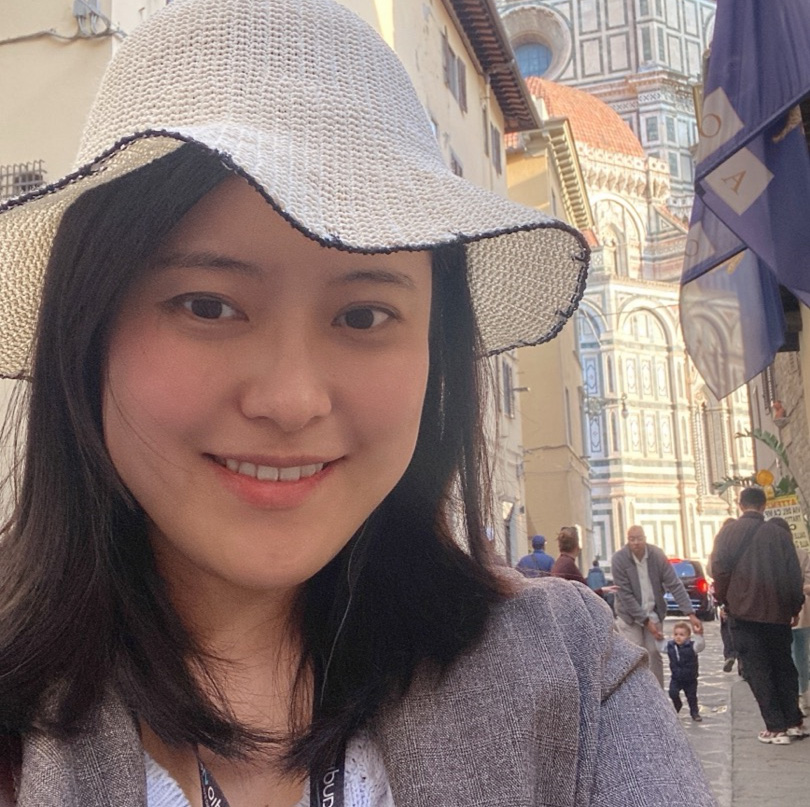
Moonjoo Kim
Moonjoo grew up in Seoul, South Korea. She got her B.S., M.S. and Ph.D. in Chemistry at Seoul National University. Under the supervision of Prof. Taek Dong Chung, she studied the electrical double layer as reaction environment for electrocatalysis. After getting her Ph.D., she worked in Prof. Wolfgang Schuhmann's group at Ruhr-Universität Bochum as a postdoctoral researcher to study complex electrocatalysts using high-throughput methodologies. She joined the Schreier group in 2025. In her free time, she likes cooking and playing computer games. Click to learn more!

Moonjoo Kim
Moonjoo grew up in Seoul, South Korea. She graduated from Seoul National University (SNU) with a Bachelor's degree in Chemistry and Environmental Materials Science in 2018. In the same university, she got her M.S. and Ph.D. in Chemistry under the supervision of Prof. Taek Dong Chung, and studied the electrical double layer as a unique reaction environment for electrocatalysis. During her Ph.D., she joined Prof. Wolfgang Schuhmann's group in Ruhr-Universität Bochum, Germany as a visiting researcher for one year, where she studied scanning electrochemical cell microscopy (SECCM). After getting her Ph.D., she worked in Prof. Wolfgang Schuhmann's group for two years as a postdoctoral researcher to study high-entropy alloy and complex solid solution electrocatalysts using high-throughput methodologies. She joined the Schreier group in 2025. In her free time, she likes cooking and playing computer games.
Prior Institutions
- B.S., Seoul National University (2018)
- Ph.D., Seoul National University (2023)
- Postdoc, Ruhr-Universität Bochum (2025)
Awards
- ACS Fall 2023, Best poster award
Undergraduate Students
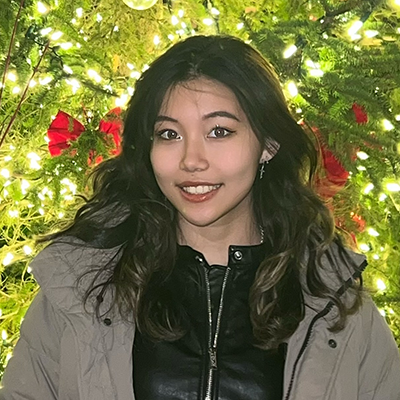
Kerry Lu
Kerry (Kairui) Lu grew up in Haikou, Hainan, China. She is currently majoring chemical engineering at the University of Wisconsin Madison for her Bachelor’s degree as a second-year student. In the summer of 2023, she did a research internship in Prof. Yulian He’s group at Shanghai Jiaotong University, focusing on the cathode of lithium-magnesium batteries. She joined the Schreier lab in 2024. In her free time, she enjoys playing games on Nintendo Switch and 3DS. Click to learn more!
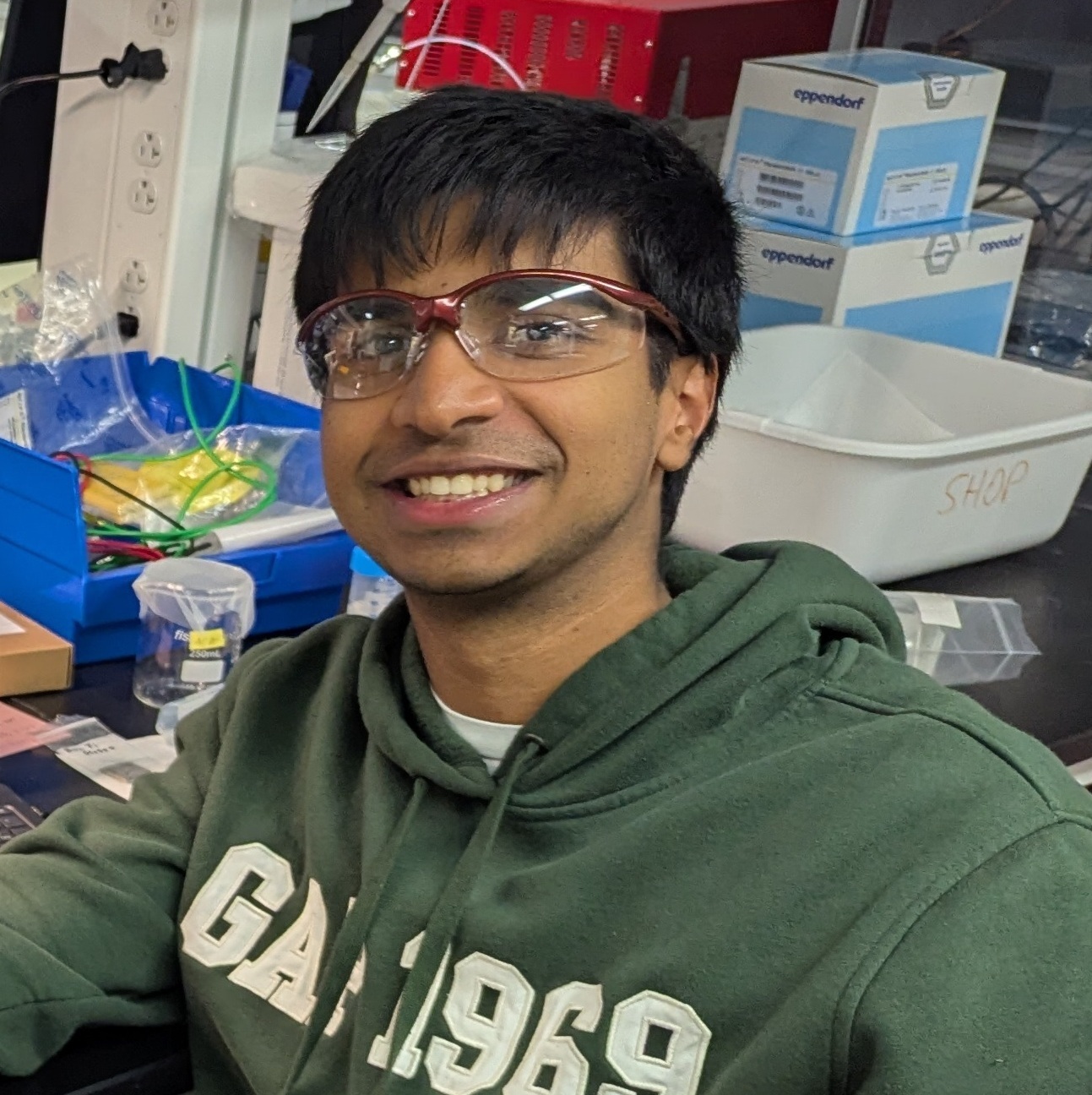
Satyam Bushnan
Satyam Bhushan is currently majoring in Chemical Engineering at the University of Wisconsin–Madison. He joined the Schreier Lab in 2025. In his free time, he enjoys working out, spending time with friends, and exploring new interests. Click to learn more!
Jack Shabaker
Jack is currently majoring in Chemical Engineering at the University of Wisconsin Madison and getting a certificate in German. Over the summer, he worked in the MaSEL lab at UIC under Dr. Meenesh Singh focusing on electrochemical CO2 reduction. He joined the Schreier lab in 2025. Click to learn more!

Kerry Lu
Kerry (Kairui) Lu grew up in Haikou, Hainan, China. She is currently majoring chemical engineering at the University of Wisconsin Madison for her Bachelor’s degree as a second-year student. In the summer of 2023, she did a research internship in Prof. Yulian He’s group at Shanghai Jiaotong University, focusing on the cathode of lithium-magnesium batteries. She joined the Schreier lab in 2024. In her free time, she enjoys playing games on Nintendo Switch and 3DS.
Prior Institutions
- Valley Christian High School (2022)

Satyam Bushnan
Satyam Bhushan grew up in Woodbury, Minnesota. He is currently majoring in Chemical Engineering at the University of Wisconsin–Madison. While in high school, he completed dual enrollment (PSEO) at the University of Minnesota Twin Cities and presented a research paper at the World Food Prize Global Youth Institute on the role of fuel cells in addressing Japan’s food and energy insecurity. At UW–Madison, he tutors literacy and math for both university students and high schoolers in the Madison area. He joined the Schreier Lab in 2025. In his free time, he enjoys working out, spending time with friends, and exploring new interests.
Prior Institutions
- East Ridge High School (2024)
Jack Shabaker
Jack Shabaker grew up in Naperville, Illinois. He is currently majoring in Chemical Engineering at the University of Wisconsin Madison and getting a certificate in German. Over the summer, he worked in the MaSEL lab at UIC under Dr. Meenesh Singh focusing on electrochemical CO2 reduction. He joined the Schreier lab in 2025. In his free time, he enjoys playing soccer, tennis, and golf as well as traveling, learning languages, and spending time with friends and family.
Prior Institutions
- Neuqua Valley High School (2024)
